Some 200 farmers from the southeast were present at a recent IFA TB eradication meeting in Baltinglass, Co Wicklow.
When asked to stand up if they’d been impacted by TB, there were no farmers left sitting. The Irish Farmers Journal spoke with some of the hardest hit
Oliver and Avril Power,
Blackwater,
Co Wexford
A family holiday to Florida last May was cancelled when the Powers’ 500 head of cows were hit with TB. Ten of their pedigree Holstein milking herd had gone down in a skin test in April and they were hoping the blood tests wouldn’t show much more.
However, while packing for a Sunday flight, they got a call from the district veterinary office (DVO) to tell them a further 86 cows were reactors.
“I’ll never forget the phone call from the DVO the Friday evening at 5.30pm. It always happens Friday late. I was in disbelief. We were left for a weekend digesting this. The pressure of that and the torment of it.
“When Oliver took over the farm, we’d 15 cows. He’s worked his arse off all his life. We don’t buy in anything other than a continental stock bull now and again for cleanup. We were really trying to work with Progressive Genetics to improve the herd, build up solids. Honest to God, the money and the time getting the feed and everything right and then for this to happen. We were milking them down the drain at 50c/l.
“The cows are really well looked after here and you get to know them. As soon as they get TB, they’re treated as not really your animals. Five lorries came for the 86 at 5am on 20 May. I went out that morning to the field to get them up. It was the hardest thing I’ve done, the worst thing I’ve ever experienced. There were a lot of tears,” Avril Power said.
Hopes TB was out
While devastated by the loss from their herd, the Wexford farmer said a loss in their community around the time put things in perspective. “Nobody had died. We said we’d draw a line and please God, we’d got the TB out. But that’s not the way it went,” she said.
While the 96 April and May reactors had been confined to the milking herd on the home farm, a 60-day skin retest found a further 36 reactors in the calves, beef bullocks and heavily in-calf maiden heifers, including 11 of 22 maidens who’d been on an outfarm and hadn’t been in contact with other cattle for over a year.
The 36 left on the 22 August and last month, a further 75 went down in the subsequent blood test, leaving the farm this week, bringing the total loss to 207 cattle, including 116 milking cows in a little over four months, over 40% of the Powers’ herd.
The family said they last had a small number of reactors in 2007, have no badger setts on their owned or rented land and that deer are not a problem in the area.
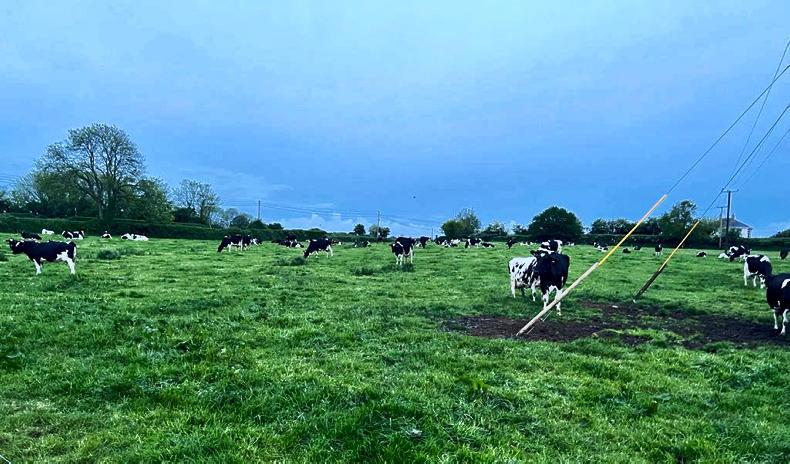
The 86 TB reactor cows before they were loaded for slaughter last May.
They say over the months of May and June alone, with the milk lost, they were down almost €100,000. While they received compensation, they said “this isn’t income” as it’s only the replacement cost of the animal. In TB income supplement for the two months, they received about €10,000 for the milk, leaving them at a loss of €90,000. They say that all in, and even though they’d be afraid to count, they’re looking at a loss of at least €200,000 so far.
‘Human element’
Oliver Power said: “There’s no support area where we can talk and you become very isolated very quickly. The human element of it gets totally overlooked.
“We’d 12 calves too young for the factory and we were asked to round them up and leave them in a pen in the yard. They came in and euthanised them in the pen. It’s had to have had an impact on our kids. None of the vet or admin staff really understand that human element.”

The Powers say there are no badger setts on their land.
While Department veterinary and administrative teams have been supportive during the outbreak, the Powers suggest that farmers with severe breakdowns like theirs should have a direct line to the senior staff handling their case, not to be left waiting or asked to leave a message through a central Department line, like they were. They said this would have been particularly helpful after their first 96 reactors, when they found it difficult to get information and support.
Based on their outbreak experience so far, they also called for a review of the market valuation system, as there is no compensatory market price comparison for Grade 1, third and fourth lactation pedigree cows. Avril said there’s no comparison because “there’s no one putting their best cows on the market”. “The market value for top cows, really isn’t good enough. It doesn’t take into account that you don’t want to sell. The cow isn’t on the market,” she said.
Eradication programme
Most importantly, however, the Powers query the strategy of the Department’s eradication programme. Avril pointed out that in 2020’s €97m budget, only €4m was spent on “the actual basis of the problem” in wildlife. The rest, she said, including €28m staff costs, is spent on the impact of the problem which in her view, “is like closing the stable door after the horse has bolted”.
Having invested in biosecurity measures on the farm and with bank loans and rented land to be paid for, Oliver said: “The next test is in December. We don’t know what’s going to happen. If we continue to have a dairy herd after that, we’re at risk of recurrence if they can’t tell us what the problem is. We don’t want to depopulate. We’re dairy farming and that’s what we know.”
Denis Halpin,
Grana More,
Co Wicklow
Wicklow suckler and sheep farmer Denis Halpin has been hit so badly with TB that he says it is no longer viable for him to farm cattle.
While he got a clear test in March 2022, being locked up on and off for the two years prior to that has led him to cut his herd from 25 to five animals.
“They kept taking them along in dribs and drabs. The cows are all gone. We’re just not going to get back into them, certainly not at the moment. I made a lot of silage this year but I’ll be selling it rather than buying in cattle for it. It’s just too risky,” he said.
“Explosion” of deer
Halpin described how he went down with TB in 2020, having been clear since 2002. The outbreak, he says, is down to an “explosion” of deer and badger numbers in the area.
“During COVID, no one wanted to shoot the deer. The shooters are gone very reluctant too for fear of getting TB themselves. A neighbour shot and tested two and they were rotten with TB.
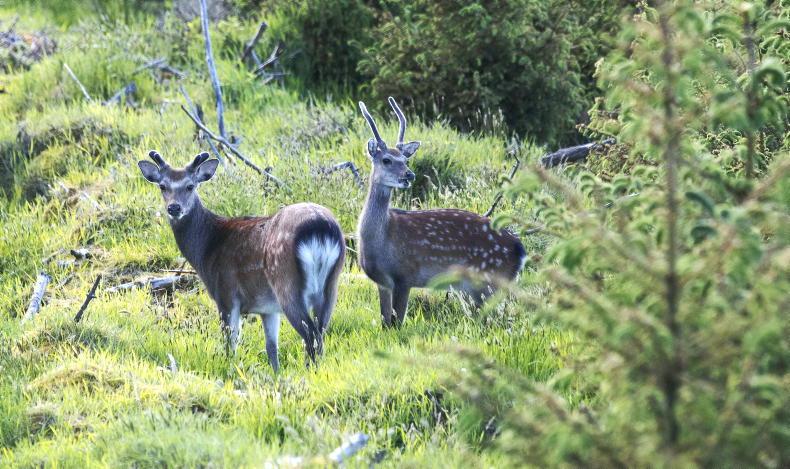
The deer population in Wicklow has exploded says former suckler farmer Denis Halpin. \ Damien Eagers
“The deer and badgers are in with the cattle at night. Sometimes you’d drive past during the day and they’d be there as well.
“The problem is the deer and badgers, they have too much cover in Wicklow and they’re spreading,” he said.
Welfare issue
Halpin also described the impact of a TB outbreak on farmers.
“It’s a big welfare and health issue for us. There’s no one thinking of that.
“The cattle are gone on the trailer and there’s no one there after that. It’s very depressing on the farmer.”
Read more
Farmers locked up with TB to buy in cattle with ‘veterinary guidance’
Some 200 farmers from the southeast were present at a recent IFA TB eradication meeting in Baltinglass, Co Wicklow.
When asked to stand up if they’d been impacted by TB, there were no farmers left sitting. The Irish Farmers Journal spoke with some of the hardest hit
Oliver and Avril Power,
Blackwater,
Co Wexford
A family holiday to Florida last May was cancelled when the Powers’ 500 head of cows were hit with TB. Ten of their pedigree Holstein milking herd had gone down in a skin test in April and they were hoping the blood tests wouldn’t show much more.
However, while packing for a Sunday flight, they got a call from the district veterinary office (DVO) to tell them a further 86 cows were reactors.
“I’ll never forget the phone call from the DVO the Friday evening at 5.30pm. It always happens Friday late. I was in disbelief. We were left for a weekend digesting this. The pressure of that and the torment of it.
“When Oliver took over the farm, we’d 15 cows. He’s worked his arse off all his life. We don’t buy in anything other than a continental stock bull now and again for cleanup. We were really trying to work with Progressive Genetics to improve the herd, build up solids. Honest to God, the money and the time getting the feed and everything right and then for this to happen. We were milking them down the drain at 50c/l.
“The cows are really well looked after here and you get to know them. As soon as they get TB, they’re treated as not really your animals. Five lorries came for the 86 at 5am on 20 May. I went out that morning to the field to get them up. It was the hardest thing I’ve done, the worst thing I’ve ever experienced. There were a lot of tears,” Avril Power said.
Hopes TB was out
While devastated by the loss from their herd, the Wexford farmer said a loss in their community around the time put things in perspective. “Nobody had died. We said we’d draw a line and please God, we’d got the TB out. But that’s not the way it went,” she said.
While the 96 April and May reactors had been confined to the milking herd on the home farm, a 60-day skin retest found a further 36 reactors in the calves, beef bullocks and heavily in-calf maiden heifers, including 11 of 22 maidens who’d been on an outfarm and hadn’t been in contact with other cattle for over a year.
The 36 left on the 22 August and last month, a further 75 went down in the subsequent blood test, leaving the farm this week, bringing the total loss to 207 cattle, including 116 milking cows in a little over four months, over 40% of the Powers’ herd.
The family said they last had a small number of reactors in 2007, have no badger setts on their owned or rented land and that deer are not a problem in the area.

The 86 TB reactor cows before they were loaded for slaughter last May.
They say over the months of May and June alone, with the milk lost, they were down almost €100,000. While they received compensation, they said “this isn’t income” as it’s only the replacement cost of the animal. In TB income supplement for the two months, they received about €10,000 for the milk, leaving them at a loss of €90,000. They say that all in, and even though they’d be afraid to count, they’re looking at a loss of at least €200,000 so far.
‘Human element’
Oliver Power said: “There’s no support area where we can talk and you become very isolated very quickly. The human element of it gets totally overlooked.
“We’d 12 calves too young for the factory and we were asked to round them up and leave them in a pen in the yard. They came in and euthanised them in the pen. It’s had to have had an impact on our kids. None of the vet or admin staff really understand that human element.”

The Powers say there are no badger setts on their land.
While Department veterinary and administrative teams have been supportive during the outbreak, the Powers suggest that farmers with severe breakdowns like theirs should have a direct line to the senior staff handling their case, not to be left waiting or asked to leave a message through a central Department line, like they were. They said this would have been particularly helpful after their first 96 reactors, when they found it difficult to get information and support.
Based on their outbreak experience so far, they also called for a review of the market valuation system, as there is no compensatory market price comparison for Grade 1, third and fourth lactation pedigree cows. Avril said there’s no comparison because “there’s no one putting their best cows on the market”. “The market value for top cows, really isn’t good enough. It doesn’t take into account that you don’t want to sell. The cow isn’t on the market,” she said.
Eradication programme
Most importantly, however, the Powers query the strategy of the Department’s eradication programme. Avril pointed out that in 2020’s €97m budget, only €4m was spent on “the actual basis of the problem” in wildlife. The rest, she said, including €28m staff costs, is spent on the impact of the problem which in her view, “is like closing the stable door after the horse has bolted”.
Having invested in biosecurity measures on the farm and with bank loans and rented land to be paid for, Oliver said: “The next test is in December. We don’t know what’s going to happen. If we continue to have a dairy herd after that, we’re at risk of recurrence if they can’t tell us what the problem is. We don’t want to depopulate. We’re dairy farming and that’s what we know.”
Denis Halpin,
Grana More,
Co Wicklow
Wicklow suckler and sheep farmer Denis Halpin has been hit so badly with TB that he says it is no longer viable for him to farm cattle.
While he got a clear test in March 2022, being locked up on and off for the two years prior to that has led him to cut his herd from 25 to five animals.
“They kept taking them along in dribs and drabs. The cows are all gone. We’re just not going to get back into them, certainly not at the moment. I made a lot of silage this year but I’ll be selling it rather than buying in cattle for it. It’s just too risky,” he said.
“Explosion” of deer
Halpin described how he went down with TB in 2020, having been clear since 2002. The outbreak, he says, is down to an “explosion” of deer and badger numbers in the area.
“During COVID, no one wanted to shoot the deer. The shooters are gone very reluctant too for fear of getting TB themselves. A neighbour shot and tested two and they were rotten with TB.

The deer population in Wicklow has exploded says former suckler farmer Denis Halpin. \ Damien Eagers
“The deer and badgers are in with the cattle at night. Sometimes you’d drive past during the day and they’d be there as well.
“The problem is the deer and badgers, they have too much cover in Wicklow and they’re spreading,” he said.
Welfare issue
Halpin also described the impact of a TB outbreak on farmers.
“It’s a big welfare and health issue for us. There’s no one thinking of that.
“The cattle are gone on the trailer and there’s no one there after that. It’s very depressing on the farmer.”
Read more
Farmers locked up with TB to buy in cattle with ‘veterinary guidance’








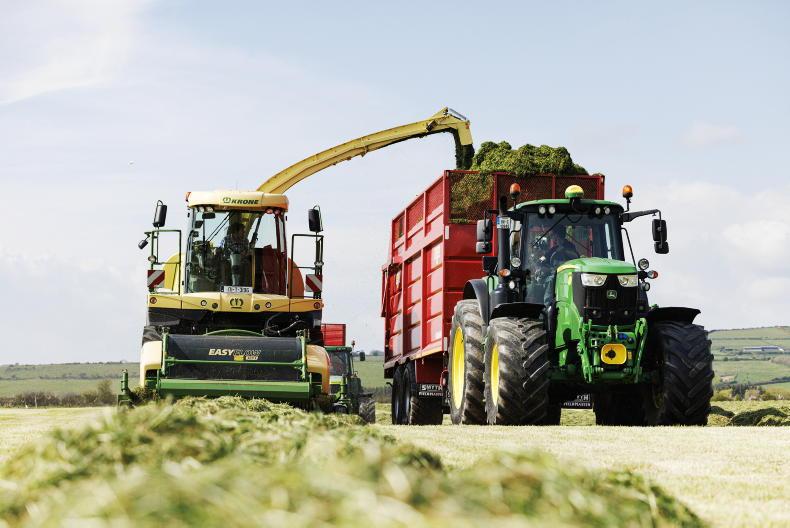
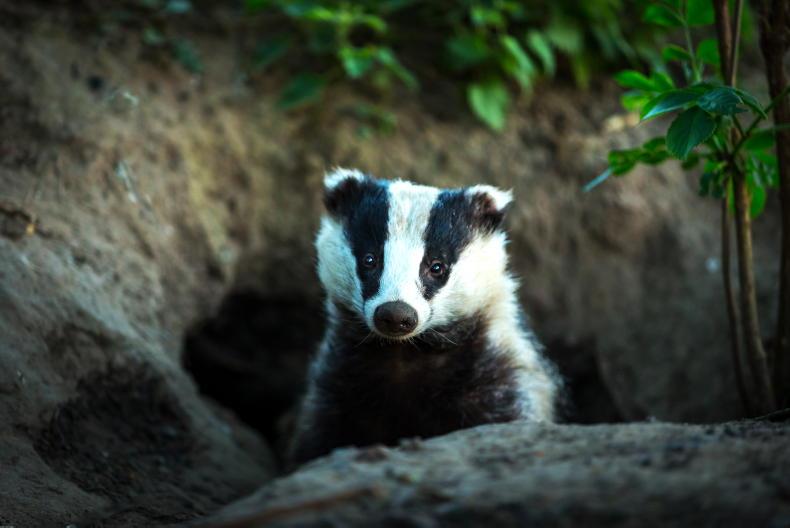
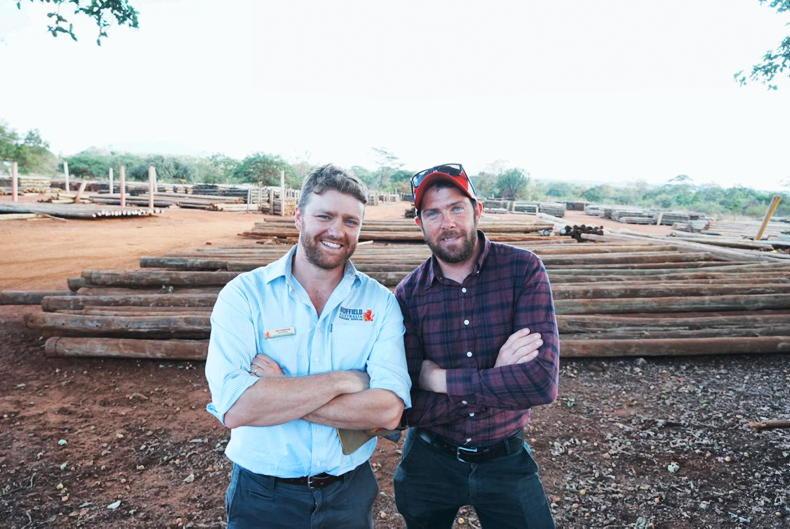
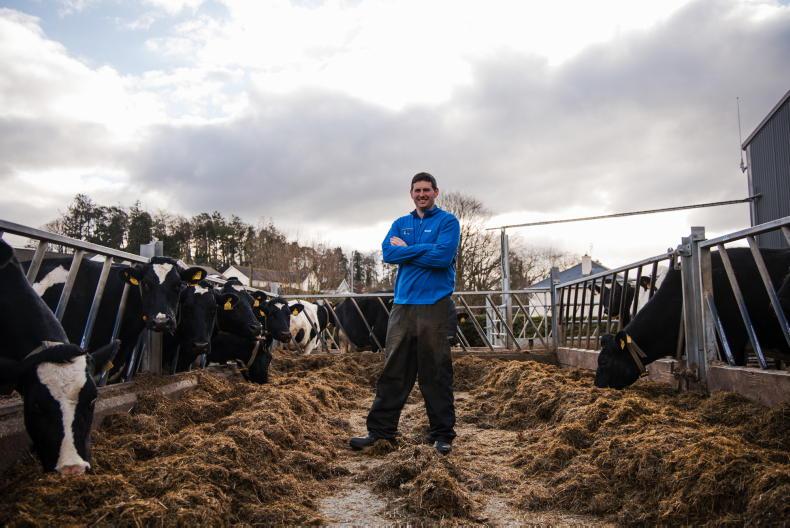
SHARING OPTIONS